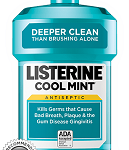How many times have you walked out of the grocery store wondering how on earth you could have possibly spent so much?
Chances are you might be making one of these five mistakes.
You shop without a plan.
You need to have a list. It’s non-negotiable if you want to save money.
And that list needs to be written down. Don’t wander into the store with some vague idea you need laundry soap and something for dinner tomorrow. That sort of haphazard shopping is what leads you into leaving with $100 worth of groceries and nothing for dinner.
Write it down and stick to the list.
You aren’t flexible with your purchases.
While you want to shop from a list, you need to have a certain level of flexibility too.
Maybe your recipe calls for green leaf lettuce, but red leaf lettuce is on sale. In this case, you don’t want to be a slave to your list. Buy the red leaf lettuce instead!
Along the same lines, if you see a great deal, don’t skip it simply because you didn’t plan for it. You can’t always plan for clearance sales or discounted meats and produce. When you’re shopping and find a great price, it’s ok to go off your list and pick up those bargains.
Just be sure they’re products you’ll actually use and that you aren’t only buying because it’s a deal.
You don’t know your prices.
Tying into that last point, you need to know a good deal when you see one. That means understanding the pricing trends for the items you buy most often.
At SavingsAngel.com, our Enlightened Shopping section highlights the best deals for our members so they know when a price is rock bottom. However, you can create a paper price book or use an app, such asPriceBook, to track sales on your own.
To start, record the prices of the 20 items you buy most often. Then watch for sales and write down those prices along with the date of the sale. After a few months, you should be able to see trends in when the items go on sale and how low the price will go.
You go to the store hungry.
Never, ever head to the grocery store on an empty stomach.
Grocers have made marketing to your senses a fine art. There is the smell of fresh bread wafting from the bakery. The sample carts dotting the aisles. The music designed to keep you in the store and shopping as long as possible.
If you’re hungry, you’ll fall for every single one of their marketing gimmicks. Not to mention, you’ll simply want to eat everything in the store because you’re starving.
Shop on a full stomach to make sure you stay focused on your shopping list rather than chasing every sweet smell in the store.
You shop at the wrong times.
Finally, there is a little bit of disagreement regarding the best time to shop. Some folks insist the weekend is best because stores may have extra sales then. Certainly, some stores run special promotions. The Meijer Super Saturday sales are a good example.
However, my experience tells me consumers spend less when they shop at off-peak times ““ weeknights early in the week are often best. Some research indicates we buy more when we shop with crowds. We see other people buying items, and we want them too.
But more importantly, mid-week seems to be when a lot of items move to clearance and meat and produce is marked down for quick sale. By the weekend, those items are gone. By shopping earlier in the week, you can shop in peace and likely score some great deals too.



